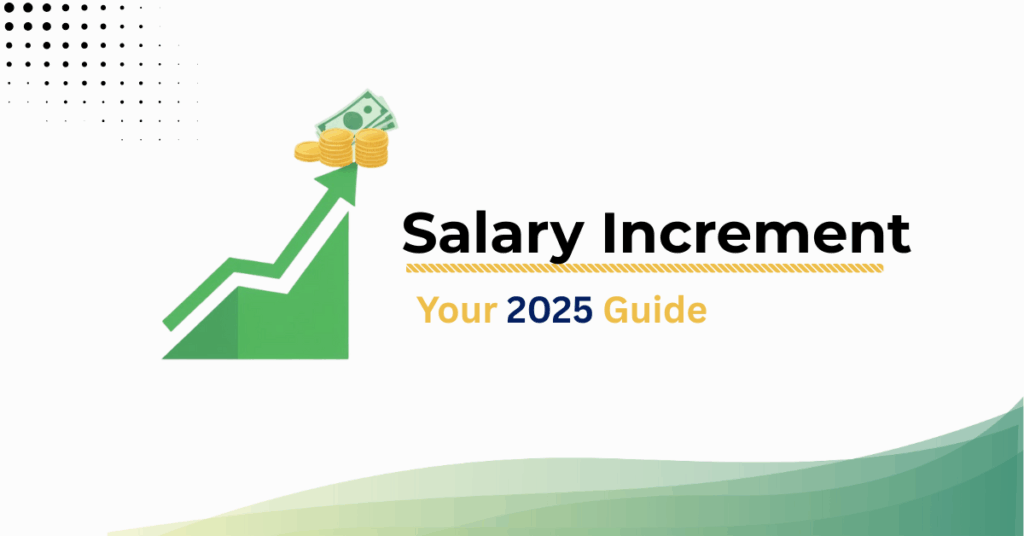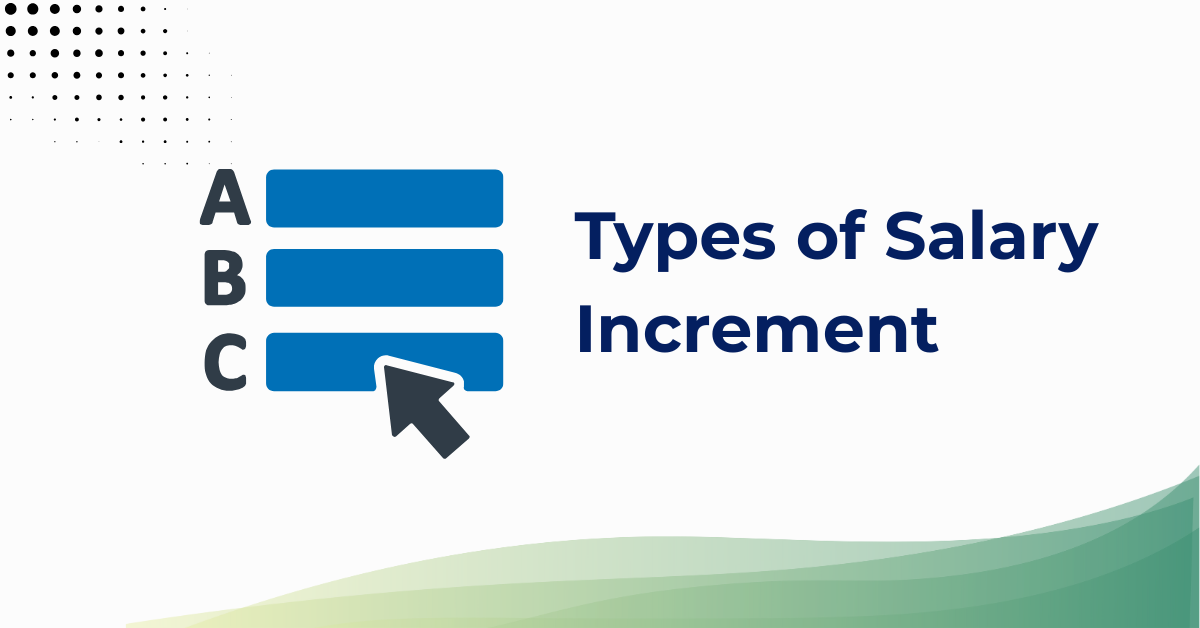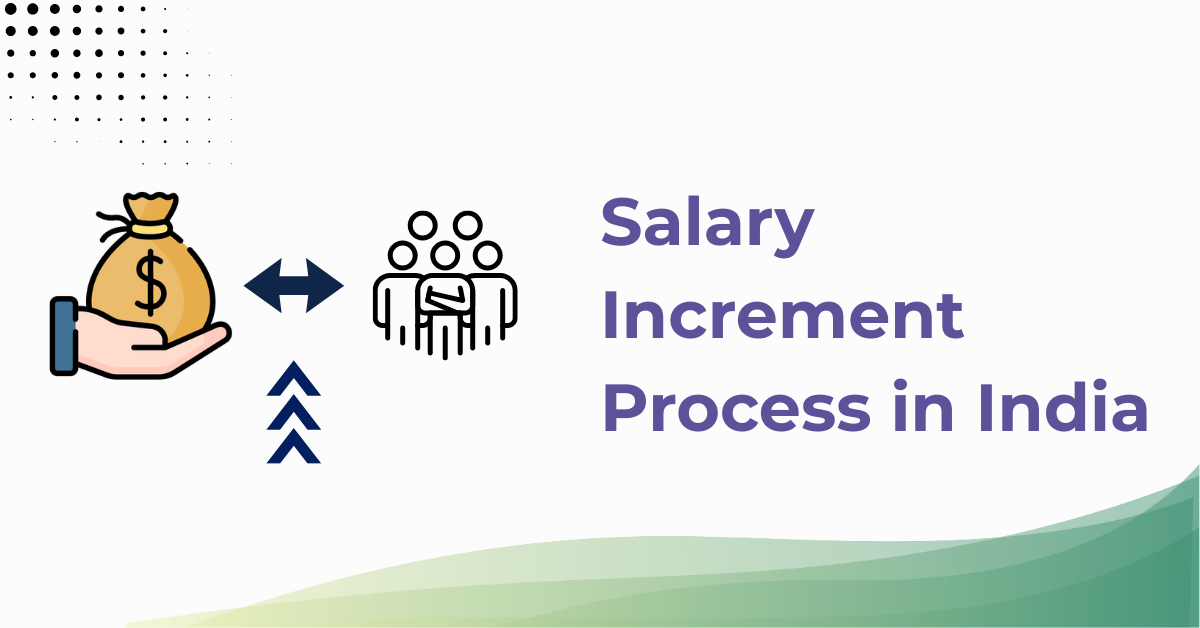2025 Salary Increment Trends & Tips: Maximize Your Raise
Introduction: What is a Salary Increment?
A salary increment is an increase in an employee’s pay, usually offered periodically to reward performance, retain talent, or adjust for inflation. In India, salary increments are a key part of career growth and employee satisfaction, influencing motivation and retention. They can be annual, performance-based, or linked to promotions and market adjustments. For employers, a fair policy helps maintain workplace morale and competitiveness. Understanding the salary increment process in India empowers both employees and companies to align expectations, ensure transparency, and build trust, making increments a vital part of modern HR management Leveraging the right HRMS Solutions can simplify the process and ensure accurate, timely increments.”
Types of Salary Increments
Understanding the types of Salary increment is essential for both employees and employers to ensure clarity and fairness in compensation. Companies usually follow different approaches based on performance, market trends, and organizational policies.
- Annual Increments
These are fixed periodic increases, usually given once a year, to account for cost of living adjustments and reward employee loyalty. They are often part of a company’s standard HR policy. - Performance-Based Increments
These increments reward individual achievement and contributions. Employees who exceed targets or demonstrate exceptional skills receive higher raises, creating a culture of merit-based growth and motivation. - Market Adjustments
These are salary increases made to align compensation with current market rates. They help businesses retain talent by ensuring salaries remain competitive in the industry. - Promotion-Linked Increments
When an employee is promoted to a higher role, a salary increment is usually offered to reflect increased responsibilities, skills, and contributions. This type of increment strengthens employee engagement and career progression.
By understanding these types of salary Increment employees can better navigate career growth discussions, while employers can design transparent and fair increment policies that support motivation, retention, and organizational success.
Salary Increment process in India
The salary increment process in India is a structured approach that companies follow to ensure fair and transparent compensation adjustments. It involves multiple steps, guided by company policy, performance data, and market benchmarks. Understanding this process helps employees set realistic expectations and prepares employers to reward talent effectively.
How Salary Increment Decisions Are Made
Salary increments are usually determined based on a combination of factors such as employee performance, company performance, market salary trends, and inflation. Companies often define a budget for increments during their annual financial planning, which is then distributed based on individual evaluations and organizational priorities.
Role of HR and Managers
HR plays a critical role in facilitating the process by designing policies, collecting performance data, and benchmarking salaries. Managers contribute by conducting performance appraisals, providing recommendations, and aligning increment proposals with organizational goals. Together, HR and managers ensure increments are justified, equitable, and aligned with both business needs and employee expectations.
Review Cycles and Performance Appraisals
In most Indian companies, salary increments are linked to formal review cycles, which often occur annually or bi-annually. These reviews assess an employee’s performance against defined KPIs, targets, and competencies. Performance appraisals are a core part of this process — they provide documented feedback, which is used to determine increment eligibility and percentage.
By following a transparent salary increment process in India, companies foster trust, motivate employees, and maintain competitiveness in the talent market. For employees, understanding this process helps in preparing for appraisals, building a case for raises, and aligning career growth with organizational objectives.
Factors Affecting Salary Increments
Several critical factors influence how salary increments are determined. Understanding these factors affecting salary increment helps employees set realistic expectations and enables employers to create fair and transparent compensation strategies.
1. Employee Performance and Appraisal Ratings
One of the most important factors affecting salary increments is the individual’s performance. Companies typically link increments to annual performance appraisals, where employees are assessed against pre-defined Key Performance Indicators (KPIs) and objectives. High performers often receive higher increments as a reward for their contributions, while average or below-average performers may receive standard or minimal raises. Performance-based increments encourage productivity, skill development, and accountability within the workplace.
2. Company Performance and Financial Health
An organization’s financial health greatly impacts salary increments. Companies performing well financially are more likely to offer higher increments, while organizations facing cost pressures or reduced profits may limit raises. In sectors with strong growth or high demand for talent, increments tend to be more competitive. Employers must balance rewarding employees with sustaining business growth and profitability.
3. Market Salary Benchmarks
Market salary trends and benchmarks play a key role in increment decisions. HR teams often conduct salary benchmarking studies to ensure compensation remains competitive in the industry. If a company falls below market standards, it may offer higher increments to retain talent. Conversely, companies already offering competitive pay may provide moderate increments, focusing instead on other benefits.
4. Inflation and Cost of Living Adjustments
Inflation rates and rising costs of living influence salary increment decisions, especially in India’s dynamic economic environment. Many companies factor in cost of living adjustments (COLA) to ensure employees’ purchasing power remains intact. This protects employee satisfaction and loyalty, particularly during periods of high inflation.
Average Salary Increment in India (2025 Trends)
In 2025, the average salary increment in India was approximately 8.9%, marking one of the lowest annual hikes since 2010. This figure reflects a cautious approach by companies amid global economic uncertainties and domestic challenges. However, projections for 2026 indicate a slight uptick, with expected increments around 9%, signaling a modest recovery in salary growth The Times of India.
Industry-Specific Salary Increments
Salary increments varied significantly across different sectors:
- Real Estate/Infrastructure: Anticipated to lead with an average increment of 10.5% in 2025, reflecting strong demand and growth in the sector
- Non-Banking Financial Companies (NBFCs): Expected to see increments of 9.8%, driven by increased financial services activities
- Engineering Design Services: Projected to have increments around 9.6%, indicating robust demand for specialized engineering skills
E-commerce: Anticipated to offer 8.9% increments, aligning with the sector’s growth trajectory
- IT Sector: Companies like TCS reported increments ranging from 4.5% to 7%, with high performers receiving up to 10%, reflecting a more conservative approach in the IT industry Indiatimes.
Geographic Variations in Salary Increments
Geographic location played a significant role in determining salary increments:
- Tier I Cities: Cities like Bengaluru, Mumbai, Hyderabad, and Gurugram experienced higher increments, with certain roles attracting hikes up to 12.9% The Times of India.
- Tier II Cities: Locations such as Coimbatore, Chandigarh, Kochi, and Ahmedabad saw promising increases ranging from 9.5% to 9.9%, indicating a broad base for salary expansion across regions
How to Request a Salary Increment
Knowing how to request a Increment is essential for career growth and professional satisfaction. A well-prepared request increases your chances of success and reflects professionalism.
Preparing for a Salary Increment Discussion
Begin by understanding your company’s increment policy and the right timing for requests, often during performance reviews or appraisal cycles. Research average industry increments to set realistic expectations. This preparation demonstrates that your request is informed and reasonable.
Building a Case with Performance Data
Support your request with clear evidence of your contributions. Highlight achievements, successful projects, revenue impact, skill development, and any additional responsibilities you’ve taken on. Use quantitative data wherever possible, such as metrics showing increased productivity, cost savings, or client satisfaction. This strengthens your case and positions your request as aligned with the company’s interests.
Best Practices and Negotiation Tips
Approach the conversation with confidence and professionalism. Keep the discussion constructive — focus on your value to the organization rather than personal needs. Be open to feedback and consider alternative benefits if a full salary increment isn’t possible, such as bonuses, flexible working options, or training opportunities.
Salary Increment Policies for Employers
A clear and structured Increment policy for companies is essential to ensure fairness, transparency, and employee satisfaction. It sets expectations, reduces ambiguity, and strengthens trust between employees and management.
Designing Fair and Transparent Increment Policies
An effective policy clearly outlines eligibility criteria, timelines, appraisal processes, and performance metrics. Companies should communicate these policies openly so employees understand how increments are determined. Transparency not only builds trust but also motivates employees to perform consistently. Many organizations tie increments to performance appraisals, tenure, and market benchmarks to ensure equity and meritocracy.
Legal and Compliance Considerations
Employers must ensure that increment policies comply with labor laws, taxation rules, and employment agreements. This includes proper documentation of increment decisions, maintaining records of appraisals, and ensuring non-discriminatory practices. Compliance not only protects the company legally but also reinforces credibility in the eyes of employees.
Aligning Increments with Company Growth and Budget
A salary increment policy should align with the company’s financial health and growth objectives. Businesses should factor in budget availability, revenue forecasts, and inflation while deciding increment percentages. Balancing rewarding employees with maintaining operational sustainability ensures long-term success.
A well-crafted salary increment policy for companies acts as a roadmap for fair compensation management. It empowers HR teams, guides managers, and reinforces a company culture that values performance, transparency, and mutual growth.
Common Myths & Misconceptions about Salary Increment
Salary increments are often surrounded by misunderstandings that affect both employees and employers. Clarifying these misconceptions is essential to ensure fair practices, manage expectations, and build trust within the organization.
A. Clarifying Employee Misconceptions
- Myth 1: High performance always guarantees a large increment
While performance is important, increments also depend on company budget, industry trends, and role-specific benchmarks. Understanding the full context helps employees approach increment discussions realistically. - Myth 2: Increments happen automatically every year
Many employees assume annual increments are guaranteed. In reality, increments depend on performance reviews, company policies, and business performance. - Myth 3: Asking for an increment shows greed
When done professionally with evidence of contributions, requesting a raise reflects confidence and engagement, not selfishness.
B. Avoiding Common Employer Mistakes
- Mistake 1: Lack of transparency
Not communicating how increments are decided creates dissatisfaction. Clear policies and communication prevent misunderstandings. - Mistake 2: One-size-fits-all increments
Applying the same increment percentage to all employees, regardless of performance or role, can demotivate high performers. - Mistake 3: Ignoring market benchmarks
Without benchmarking salaries against industry trends, companies risk losing talent to competitors offering better compensation.
Conclusion
A fair and transparent process is vital for building trust, boosting employee motivation, and retaining top talent. Understanding the different types of increments, the factors that influence them, and the right approach to requesting raises helps both employees and employers align expectations effectively. For companies, implementing a well‑structured salary increment policy for companies ensures consistency, fairness, and compliance, while also supporting business growth.
With clear communication and data‑driven decisions, salary increments can become a powerful tool for enhancing engagement and fostering a high‑performance culture. By recognizing contributions fairly and aligning increments with organizational goals, businesses can strengthen their workforce and maintain competitive advantage.
💡 Call‑to‑Action: Explore our advanced HRMS solutions to streamline your process, ensure transparency, and boost employee satisfaction.









